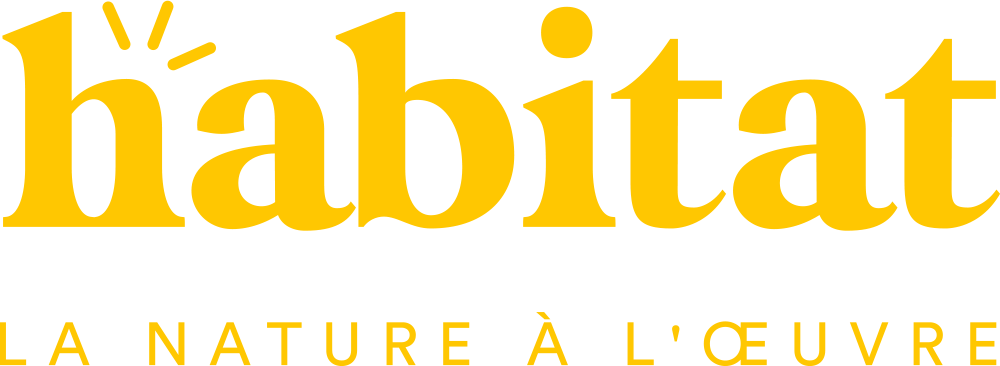The natural environments of the Manicouagan-Uapishka Biosphere Reserve store nearly 297 billion tonnes of CO2 equivalent.
PRESS RELEASE
Montreal, March 6, 2024 - A new study shows that the natural environments of the Manicouagan-Uapishka Biosphere Reserve store more than 297 billion tonnes of CO2 equivalent in their above-ground, underground and soil biomass, while forest environments (above-ground, underground and soil biomass) sequester 10.8 million tonnes of CO2 equivalent annually. The annual sequestration of the Manicouagan-Uapishka Biosphere Reserve's forests would thus make it possible to capture around 14% of Quebec's greenhouse gas emissions, then equal to 77.6 million tonnes of CO2 equivalent in 2021.
In addition to their undeniable role in climate regulation, the natural environments of this biosphere region also contribute to erosion and pollutant control, flood mitigation, the maintenance of habitats for biodiversity, and the tourism and cultural experience.
The Manicouagan-Uapishka World Biosphere Reserve (RMBMU) is aware of the particularly important role played by its natural environments and the threats it faces, and has undertaken a process to enhance the value of its territory, with a view to better documenting the practice of responsible, sustainable tourism and the protection of the ecosystems that make up its great wealth. Based on the quantification of ecosystem services, the study provides quantified data on the benefits provided by the different types of environments that make up the territory, and illustrates the link between the ecological value of environments and their attractiveness to tourists.
"Calculating the services rendered by natural environments (known as ecosystem services) not only enables us to value such environments, their role and their importance, but also to raise awareness among the population and economic and political players of the need to maintain and conserve them," says Jérôme Dupras, Professor and Research Chair in Ecological Economics at the Université du Québec en Outaouais and President and CEO of Habitat.
The figures are equally impressive when it comes to the contribution of natural environments to erosion control, with annual retention of over 9 million tonnes of sediment. The area's extensive vegetation cover greatly reduces the transfer of sediment to watercourses, thereby improving water quality. The benefits are manifold, affecting biodiversity, fishermen and recreational water users alike.
"Over and above the regulatory aspect of these approaches, the evaluation of ecosystem services has enabled us to locate areas with greater or lesser ecological value, depending on the criteria chosen, and thus propose development actions to better protect ecosystems, or on the contrary, restore them," adds Olivier Tanguy, Senior Project Manager at Habitat.
Thanks to collaboration with the Canada Research Chair in Ecological Economics, the study also shows how the quality of Manicouagan's natural environments contributes to the quality of the tourism experience. The region has strong territorial characteristics that are conducive to tourism development, but this requires a balance between visitor numbers, accessibility and protection measures to ensure that development does not come at the expense of ecosystems and biodiversity. With this in mind, the RMBMU is assessing the compatibility of responsible and sustainable tourism practices with the recognition of conservation zones, notably through the future Other Effective Conservation Measures per Zone (AMCEZ).
"This study demonstrates the complementarity between quality natural environments and the practice of various recreational and tourism activities. It is one more tool for structuring the sustainable use of the territory and supports the RMBMU's efforts in this direction," emphasizes Vincent Bussières, Senior Project Manager at the RMBMU.
These results come from a recent study conducted by Habitat for the Manicouagan-Uapishka World Biosphere Reserve, in collaboration with the Canada Research Chair in Ecological Economics at the Université du Québec en Outaouais.
This project was made possible thanks to financial support from the Ministère du Tourisme du Québec, as part of the project to create and promote a showcase for responsible and sustainable tourism in the North, and from Environment and Climate Change Canada.
Habitat is an environmental consulting firm specializing in the development and enhancement of biodiversity and ecosystems. Based in Montreal, Habitat develops cutting-edge tools and methods to help its clients implement nature-based solutions.
About the Manicouagan-Uapishka World Biosphere Reserve (MWBR)
The RMBMU is an NPO that manages the "Biosphere Reserve" status granted by UNESCO to the Manicouagan-Uapishka territory.
About the Canada Research Chair in Ecological Economics
Headed by Professor Jérôme Dupras, the Canada Research Chair in Ecological Economics is located at the Institut des Sciences de la Forêt tempérée of the Université du Québec en Outaouais. Its team of 23 researchers and graduate students aims to better understand and measure the contribution of biodiversity and ecosystems to human well-being.
About the project to create and animate a showcase for responsible and sustainable tourism in the Nordic context
In June 2022, as part of its Action Plan for Responsible and Sustainable Tourism 2020-2025, the Ministry of Tourism announced a $500,000 grant to the Manicouagan-Uapishka World Biosphere Reserve for the creation and animation of a showcase for responsible and sustainable tourism in a northern context. Currently underway, this initiative aims to :
Document and test best practices in responsible and sustainable tourism in the North
Generate knowledge and help demonstrate :
o the impacts and levers of the tourism industry in relation to combating and adapting to climate change and conserving natural environments;
o the positive impact of concerted action and conservation on the tourism experience.
Disseminate knowledge and best practices in responsible and sustainable tourism in the North
Further information:
Photo credit: Serge Jauvin
Marisa Sagues
Communications and Marketing OfficerHabitat
marisa.sagues@habitat-nature.com
Emy Westermann
Communications Advisor RMBMU
418 296-1517 ext. 1017

